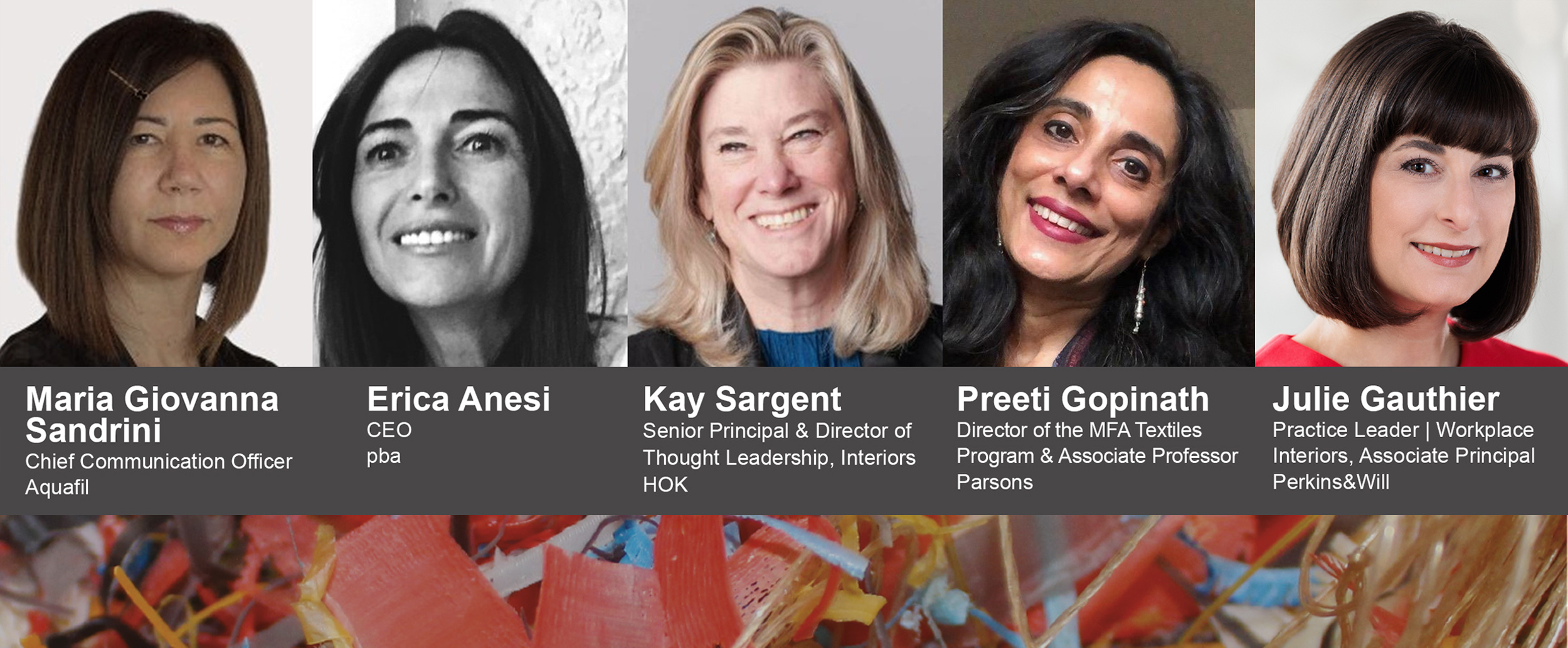At the design talks organized at NeoCon, pba introduced the Research conducted by the University of Venice IUAV, aimed at exploring the perception of inclusion and sustainability regarding TOCCO.
On June 10th and 11th at NeoCon, pba and Kay Sargent discussed about products role in Sustainability and Inclusion with Aquafil and experts sparking meaningful conversations on circular economy and inclusive design.
The panel of experts explored the collaborative efforts between producers and designers to create products that champion both inclusivity and sustainability, envisioning a future where innovation aligns seamlessly with positive societal impact.
pba CEO, Erica Anesi, with a focus on our products, shared insights into how TOCCO has redefined inclusivity in product design, paving the way for more accessible and equitable solutions. Erica also introduced research conducted by the University of Venice IUAV, commissioned from pba and Aquafil, and explained how the role of perception becomes crucial when considering objects within a space.
Maria Giovanna Sandrini, Chief Communication Officer, Aquafil Group introduced the concept of sustainable design and why this is important to Aquafil and she shared what Aquafil and pba are doing together to address inclusive and sustainable design.
pba and Aquafil commissioned this research at IUAV University's Department of Psychology of Architecture with the aim of exploring how inclusivity and sustainability are perceived by both experts and naives, and identifying which perceptual components effectively communicate inclusivity or sustainability to them.
The research investigated varied components of inclusivity and sustainability with the scope to classify them into single measurable variables (e.g. hard/soft – warm/cold), with unique meanings (the diverse concepts that underlie inclusive/sustainable artefacts). These single variables were used to investigate their related tertiary-expressive quality which influence the perception of inclusion and sustainability.
The research scope was to find a correlation between the single components of perceived inclusivity/sustainability and the tertiary-expressive qualities, to verify which categories of inclusivity/sustainability are overlooked and how.
Finally, the
perception of inclusive/sustainable artefacts were assessed by collecting empirical data on which components of an artifact express inclusivity and sustainability and the reasons behind these perceptions.

On the first panel discussion “Exploring the Intersection of Sustainable & Inclusive Design”, Kay Sargent, Senior Principal & Director of Thought Leadership, Interiors, HOK, explored how spaces can be designed to support all individuals, fostering inclusivity and accessibility.
The panel speaker Preethi Gopinath, Director, MFA Textiles & Associate Professor at Parsons School of Design - The New School, explored how sustainability and inclusivity are essential components of training for the next generation of designers, along with gathering insights on students' perspectives regarding these crucial values.
On the second design talk “What Does Responsible Design Mean?”, the amazing lineup of speakers included Julie Gauthier, Practice Leader, Workplace Interiors, Associate Principal of Perkins & Will that recently launched their Neurodiversity Assessment Toolkit focused on workplace environments. Julie explored the role of designers to raise awareness of sustainable and inclusive choices with a focus on products specified on projects that support sustainable and wellbeing goals.
Our experience at NeoCon week were a success. Participants loved browsing our products while pba introduced the research conducted by the University of Venice IUAV, engaging in the interesting panel discussion, networking, and enjoying a drink.
Download Press Release 

